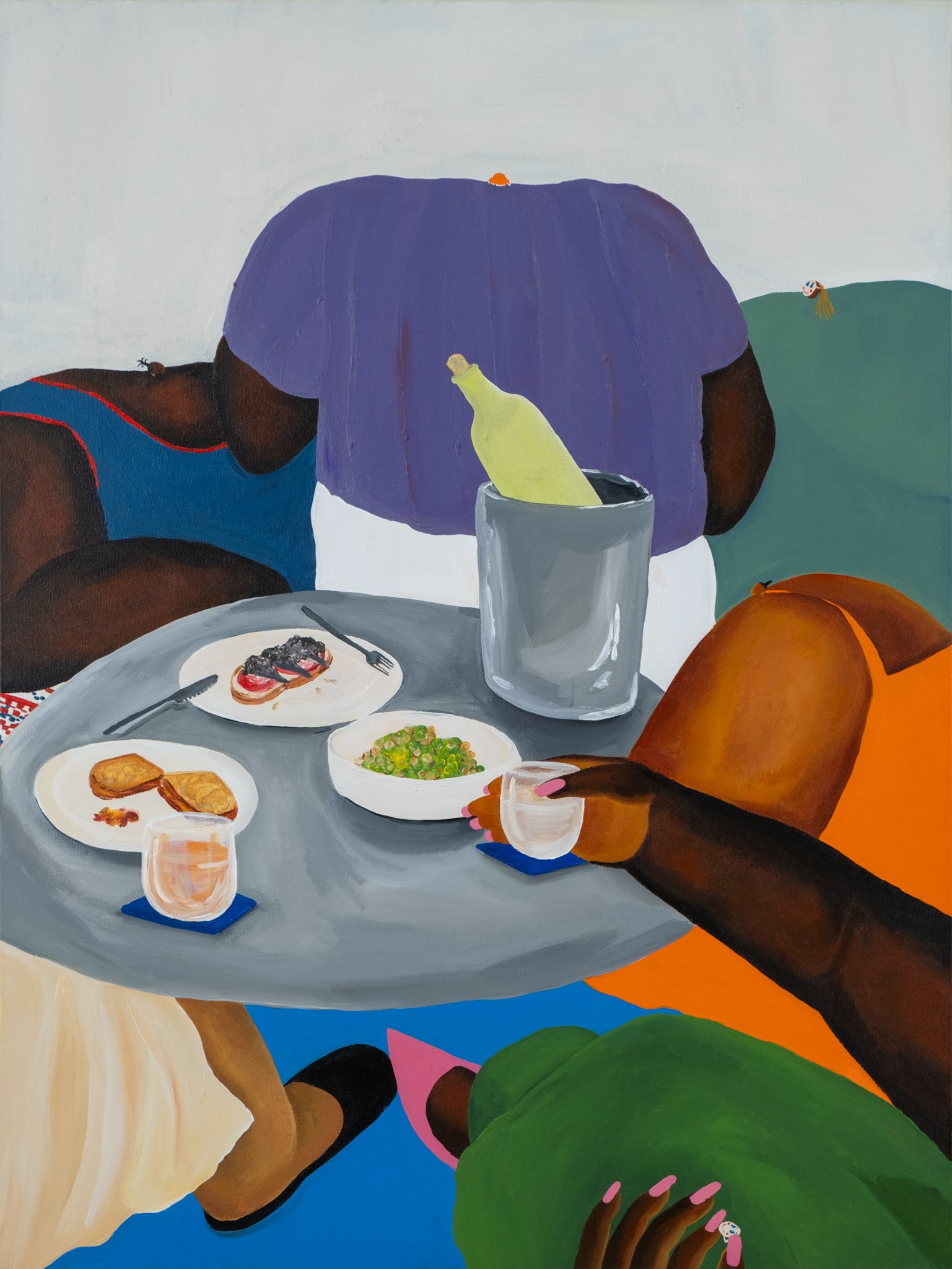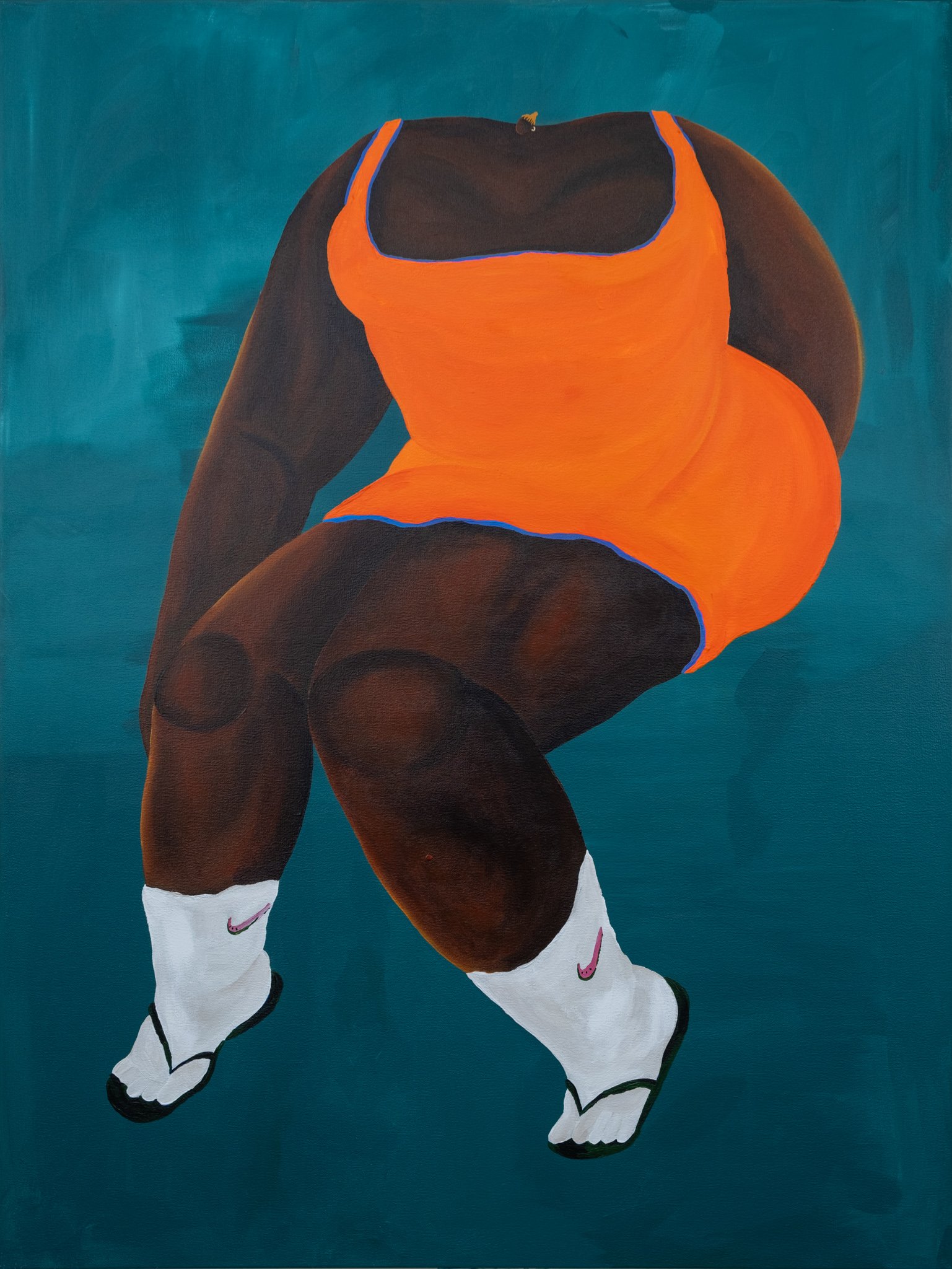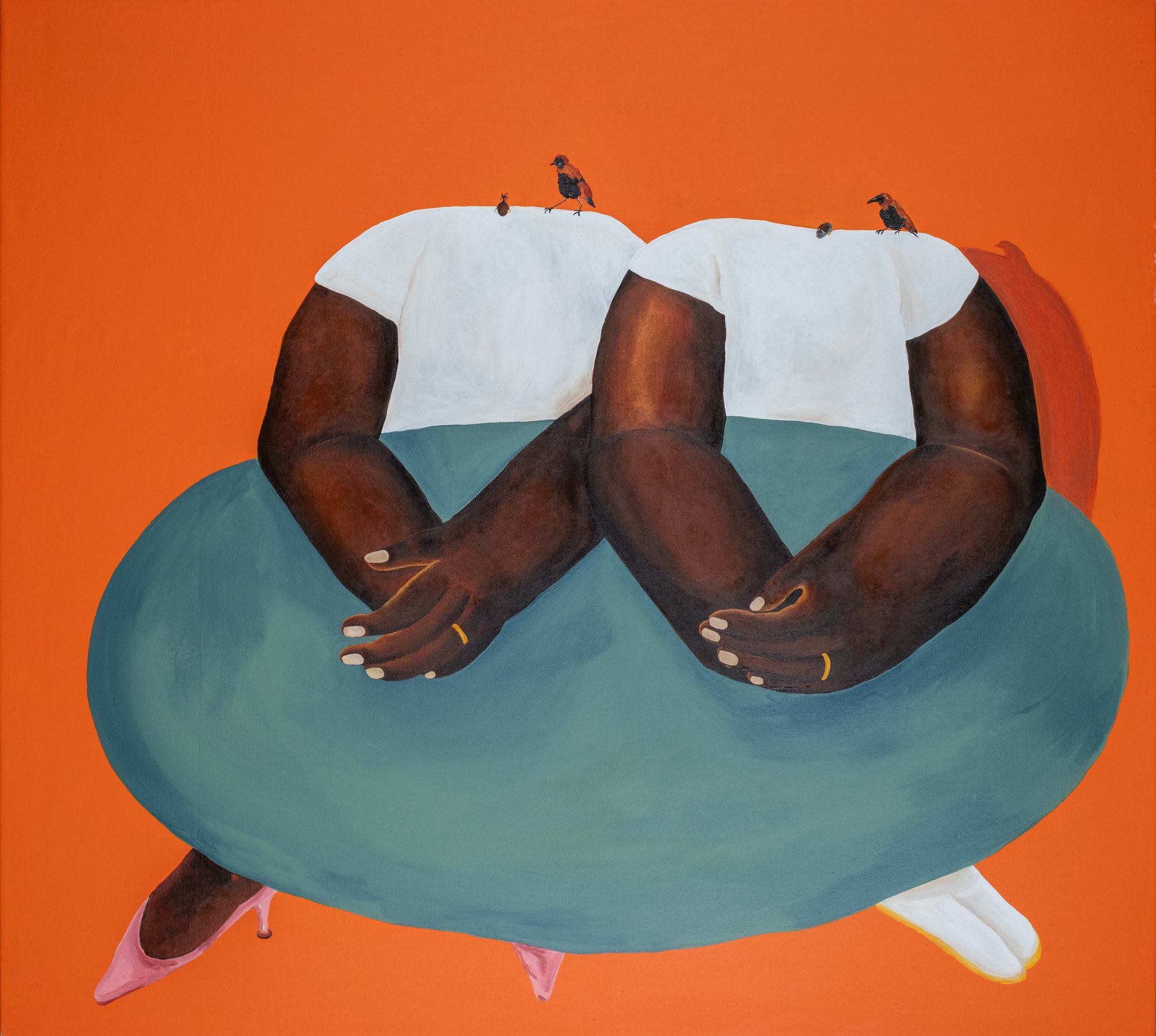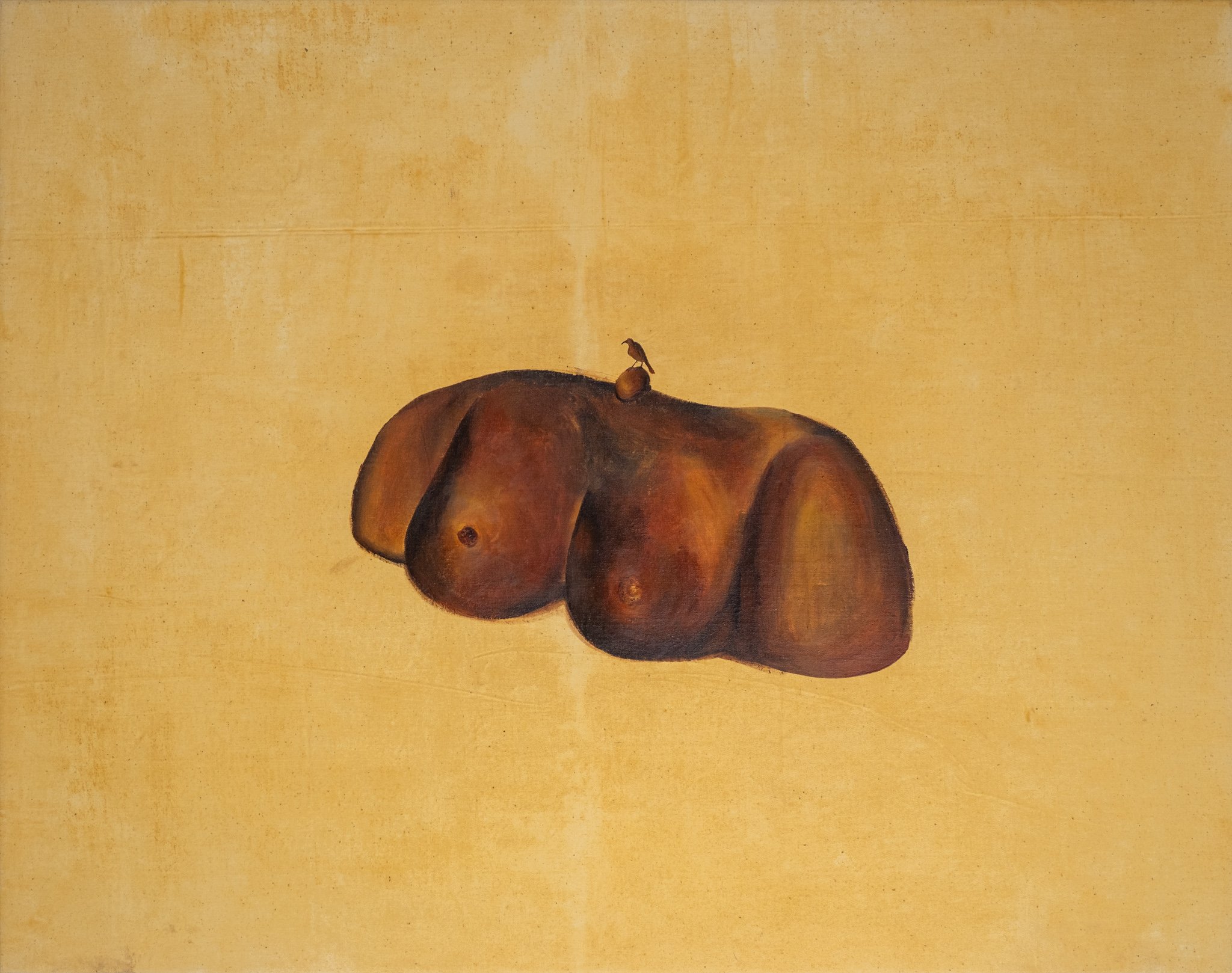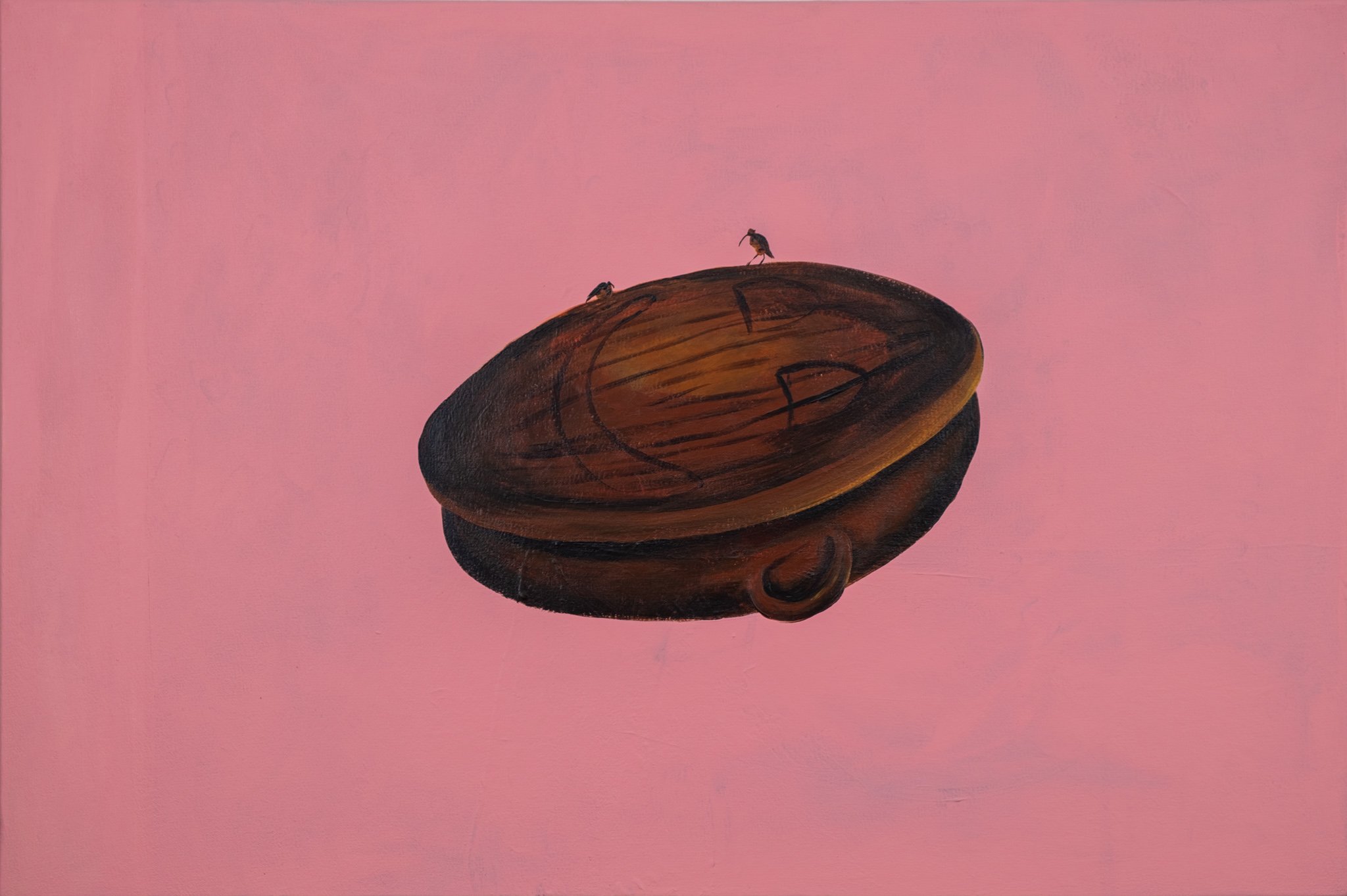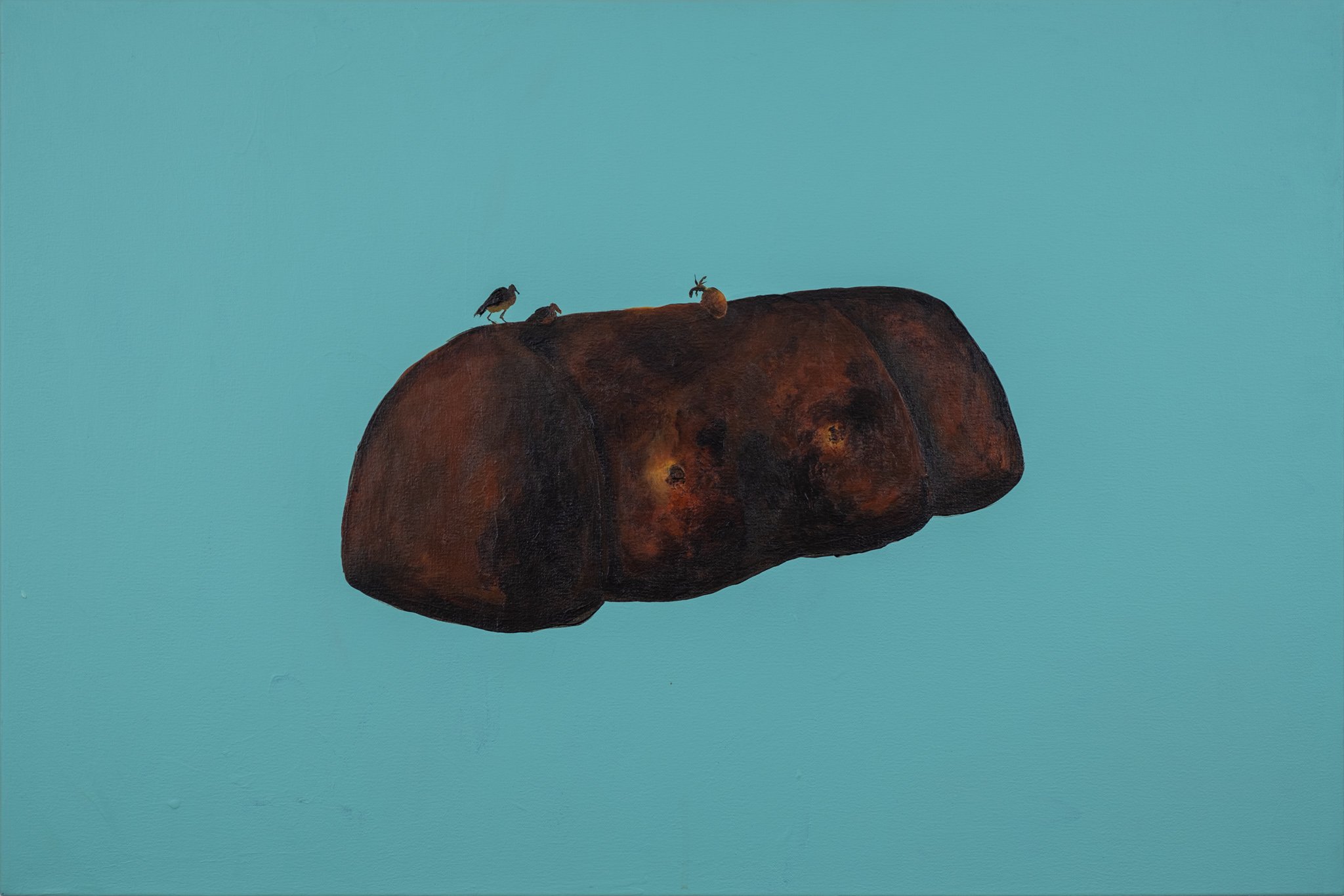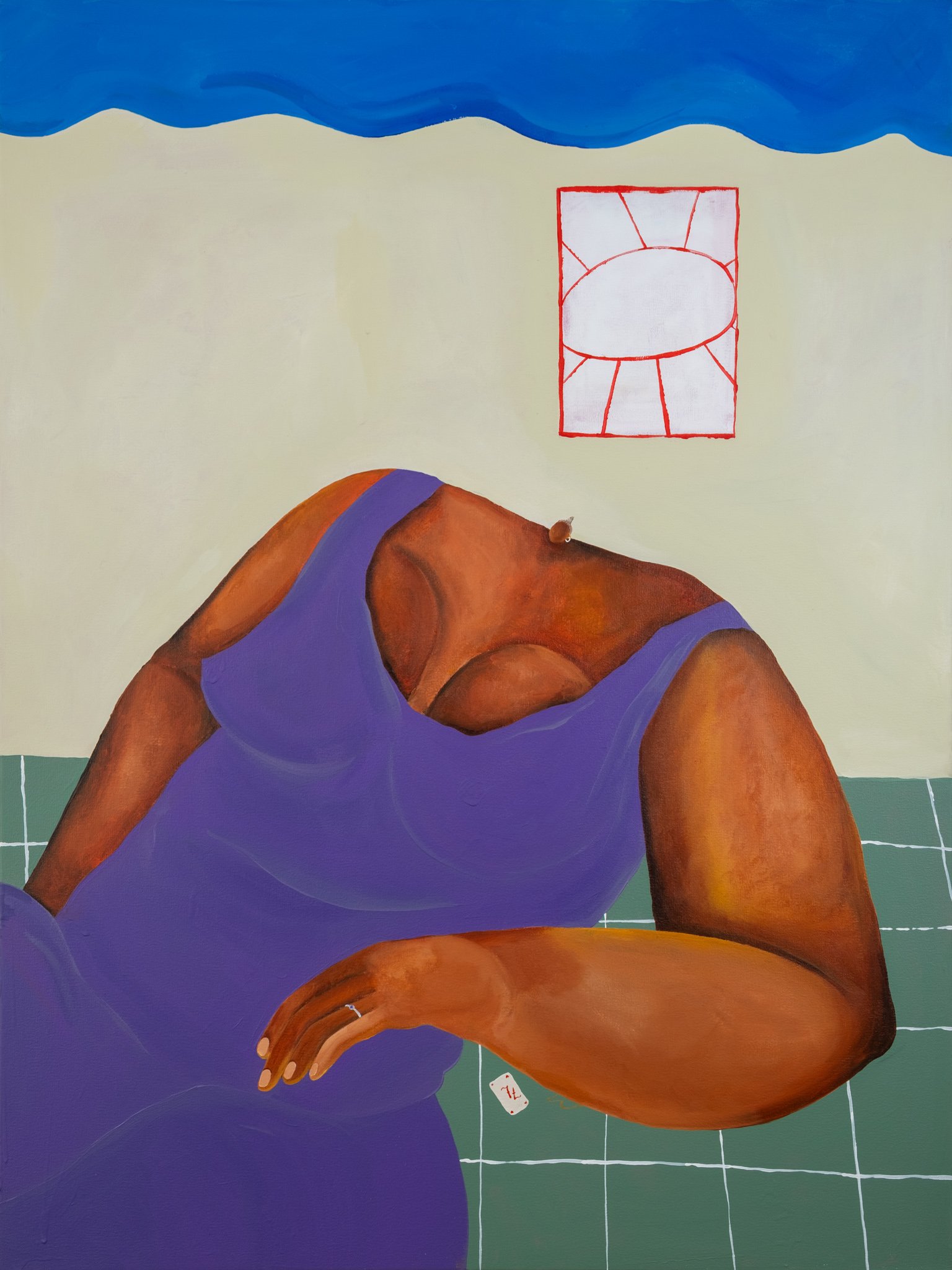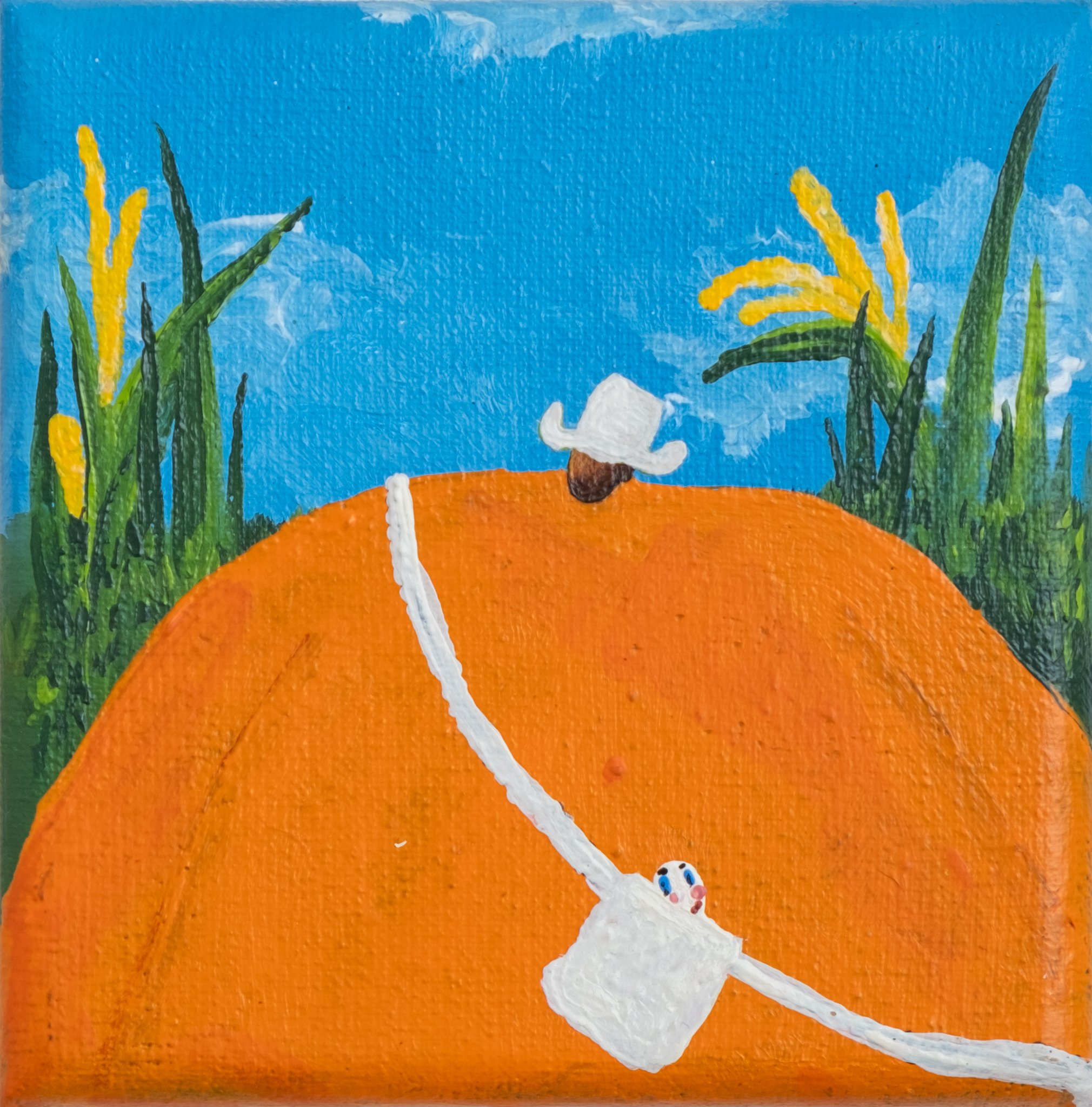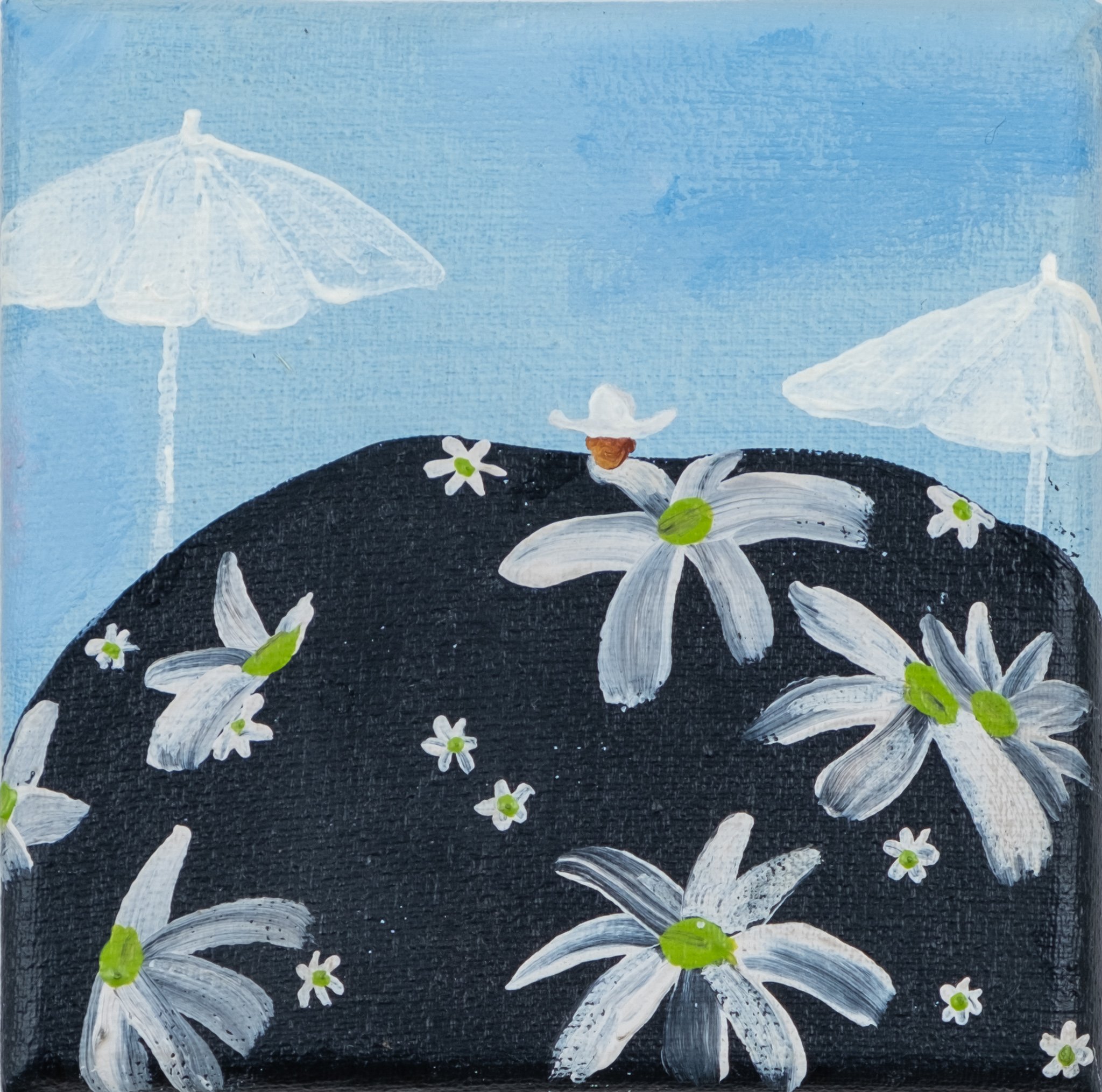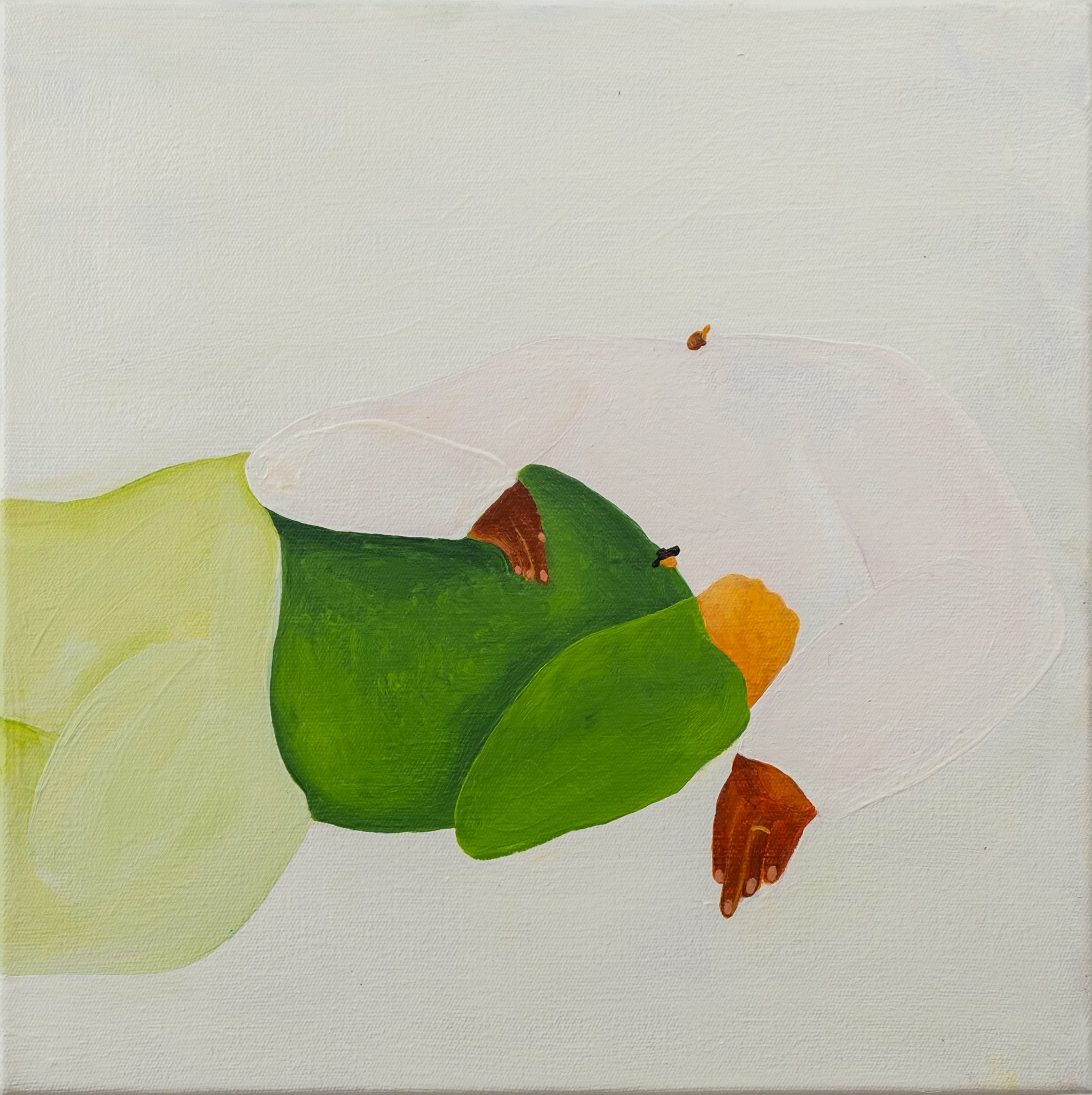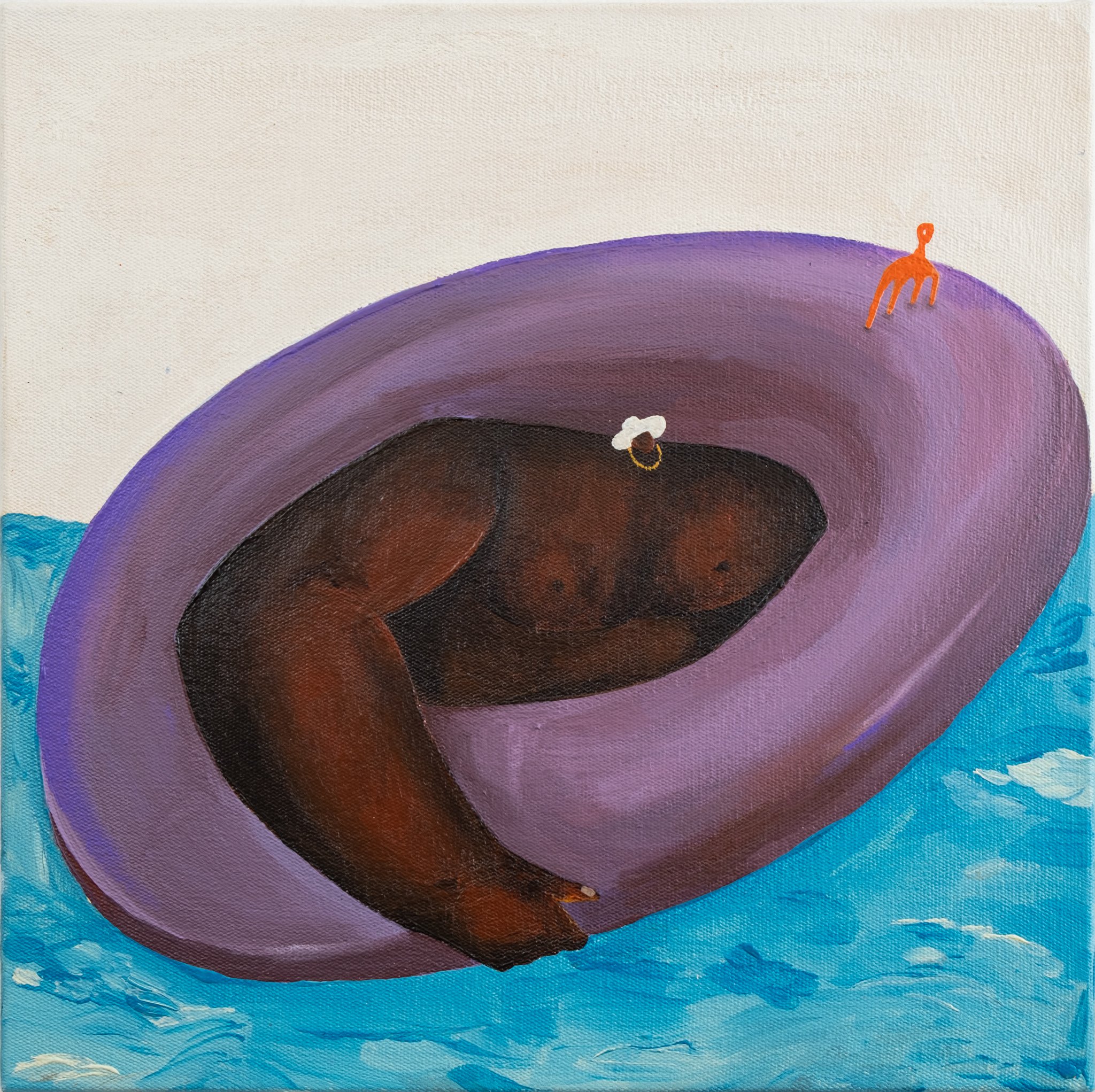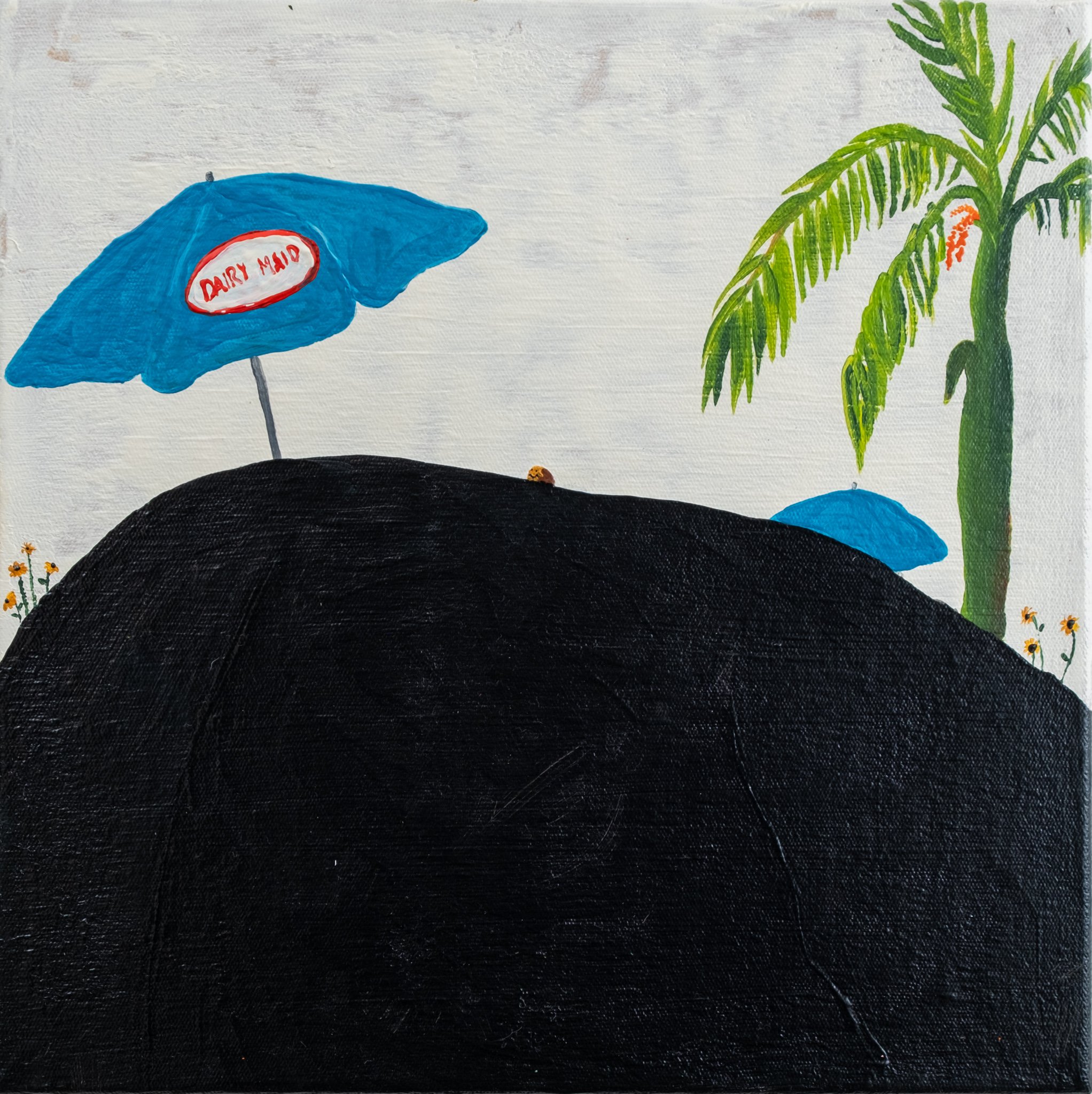Sunset Market
Bahati Simoens
24 Feb - 20 April
It was once so simple — being known by others. You chose your people and they’d choose you based on in-person qualities that you enjoyed and respected on the most basic level. The growth of the relationship was based on a slither of common interest, fun, play, conversation. Its strength was drawn from time, honesty, enduring difficulties, providing a safe space aka ‘a shoulder to cry on’ - and we would cry! Our authentic selves were the MCs of our bonds. If you didn’t want to connect, well, that was easy too — you just didn’t. Out of sight, out of mind. The same goes for our professional lives - oh boy, was there a time. You could lead healthy private and professional lives without the risk of conflation.
It was once — all — so — simple. Now, we’re over exposed and our authenticity is malfunctioning. By way of new technologies, perception is king.
Over recent months, George Berkeley’s adage “To be is to be perceived” has, for Bahati Simoens, rung as frequently as bells in a religious Italian town. The realities of no longer being nomadic have broken ground and raised the scaffolding of her “Sunset Market”. A market - the perfect place for public observation and scrutiny. “An open market is where you get to people-watch and judge others based on what you see,” says Bahati. Severe reduction is modus operandi, it tells stories of what may or may not exist, the former being shepherd. Bahati’s European upbringing unwittingly contends with her new life in South Africa. Impressions which hold her alien existence to any place outside of Belgium, make her a peculiar fit causing her to question and contort herself when she’s not entirely comfortable being her authentic self. “There are different aspects to me as an artist and as a person, not everything is the way it looks,” she says. In this market of observation, Bahati proposes a sort of Order of the Sunset — that its sighting be a signal that tomorrow will hold better conclusions than today. It is a chance to improve on individualistic and social shortcomings where they may be.
It is through “Sunset Market” that Bahati gives herself a second or even seventh chance to reintroduce and fully state who she is.
Born in Burundi then raised in Belgium, Bahati’s black, African spheres of influence had limited reach. Finding voices and figures that affirmed a large part of who she is, was not as easy and abundantly available as it may be in South Africa or any other African nation. “My practice started as a form of self-therapy where I just wanted to create this little fantasy world where there are only black people. I wanted black people to feel seen so my practice also became a love letter to the black body.” Bahati exaggerates the presence (physical, spiritual, emotional) of black people in the form of large bodies, making her subjects unmissable and certainly unforgettable. Much like Rainer Rilke’s appreciation of the headless state of Apollo’s torso, Bahati’s tiny, undetectable heads are a reminder to not get lost in the ego of the mind but to use the mind as an intelligent and empowering tool.
As an artist, she translates herself with practiced eloquence. Murky waters appear in her vulnerable expression — the parts of her she really wants people to know and experience. Palm trees and the tropics draw us to rest, joy, fun, even refuge. The slow pace of the villages she takes us to ask that we be present to ourselves, each other, and our surroundings; that we may milk the flavour of being at any given place, at any given time. In “Sunset Market” as well as
previous offerings, Bahati makes it clear that her heart is not a human organ but that it is food. Fruits, vegetables, shared meals and drinks act as supporting characters to her artworks and her real life. She uses food as a tool to demonstrate familial care — be it with people she knows or not. It’d be deceptive to only present herself as purely delightful as her colour schemes; she is human after all so it is only natural that she be dusted with various imperfections that give character. The aim in work and in life is not to always be well framed, fully understood, and palatable.
It is so simple. By removing the self-aggrandizing filter that perception may have previously alluded to, we may finally get to know or just get a better sense of Bahati Simoens and even each other.
Written by Kwanele Kunene




















